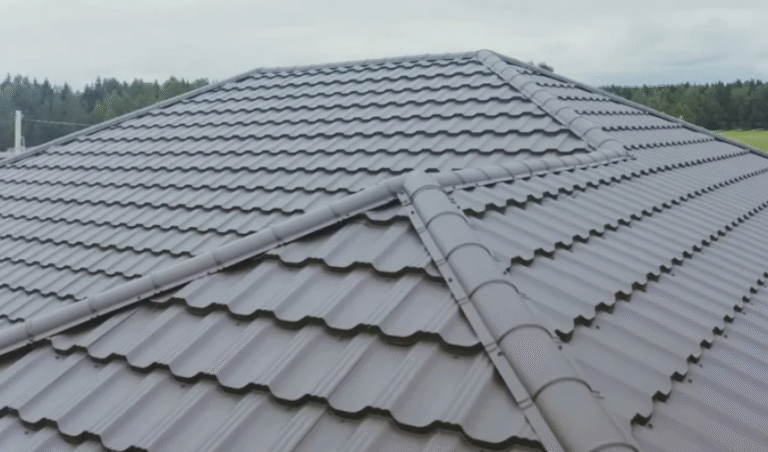Movers in Virginia: What to Expect from a Professional Moving Service

Understanding the Services Offered by Movers in Virginia
So, what does a mover do, anyway? Most people think movers just show up, haul boxes, and drive away. They actually handle a lot more, especially in Virginia. Here’s a breakdown of what you can expect when you hire a moving service here.
Local and Long-Distance Moving Solutions
Movers in Virginia handle everything from quick moves across town to big moves across state lines. Some moving companies focus only on local moves, while others have the licenses and trucks for longer hauls. Here’s how these services usually break down:
- Local moves are usually charged by the hour and work best for short distances, like moving from Alexandria to Arlington.
- Long-distance movers plan out routes, handle permits, and are required to follow extra regulations.
- Some companies also provide storage options if your new place isn’t ready on move-out day.
Packing and Unpacking Services
This is the part that often surprises people. Movers don’t just pick up your stuff; they can pack it up, too.
- Full packing: Movers bring boxes, tape, and wraps, and pack everything for you—right down to the dishes.
- Partial packing: You pack some things, like personal items, and movers handle the rest.
- Unpacking: At your new place, movers can unpack your boxes and set things up if you want.
If you don’t have much free time or feel overwhelmed by all your belongings, hiring movers to do the packing can be a lifesaver and really reduce stress on moving day.
Specialized Moving for Fragile Items
Certain things need extra attention. Whether it’s your grandmother’s hutch, artwork, or a piano, special care matters.
Here’s what movers offer for fragile or special items:
- Custom crates for large or oddly shaped pieces
- Extra padding and wrapping for electronics, art, and glass
- Hands-on care—sometimes using lift equipment for heavy or unique items
If you’re moving anything fragile, be upfront with your movers. It helps them prepare the right tools and materials and keeps your favorite things safe from damage.
| Service Type | What’s Included |
| Local Move | Hourly rates, truck, labor |
| Long-Distance Move | Route planning, regulation compliance |
| Packing & Unpacking | Boxes, supplies, labor |
| Specialty Item Moving | Custom crates, padding, lift equipment |
In short, hiring professional movers in Virginia means a lot more options and support than just boxes and trucks. They’ve got different solutions for every situation, from quick town moves to full household relocations.
How Professional Movers in Virginia Ensure a Smooth Relocation
Pre-Move Planning and Coordination
Moving isn’t just a matter of throwing boxes onto a truck. Professional movers in Virginia start with detailed planning. This prep helps avoid surprises on the big day. Here’s what you can expect:
- They review both your current and new locations to spot any tricky areas, whether it’s tight streets or narrow staircases.
- Movers discuss timelines with you from day one so everyone knows what’s happening and when.
- If you have special requests, like moving a piano or working with office furniture moving companies, tell them upfront so they come prepared.
Even a small amount of planning ahead can make an average moving day far less hectic.
Efficient Loading and Transportation
One big worry for homeowners is how long does it take movers to load a truck. Professional teams aim to work quickly but safely. They rely on proven routines:
- Crew members arrive on time and walk through the space for last-minute details.
- Movers pack the truck in a way that balances weight and keeps fragile stuff safe.
- Special equipment is used for large or bulky items, including office furniture essentials like desks and filing cabinets.
| Type of Move | Average Loading Time (3-bedroom house) |
| Local Residential | 2-4 hours |
| Office Move | 3-6 hours (depends on furniture volume) |
| Long-Distance | 3-5 hours |
A seasoned crew knows that efficient loading isn’t rushed—it’s thoughtful and organized.
Unloading and Placement at Your New Home
Getting everything off the truck and into your new house isn’t the end—it’s actually the most important part. Experienced movers:
- Bring in boxes and furniture based on your labeling system.
- Set up heavy items where you want them, so you don’t have to rearrange later.
- Double-check that nothing is missed or left behind on the truck.
Moving day often feels like chaos, but with careful coordination, it doesn’t have to be a headache. Professional movers in Virginia make it their job to make the process clear and the transition easy, whether you’re heading across town or tackling a big office move.
What to Look for When Choosing Movers in Virginia
When planning a move, the right movers in Virginia make all the difference. There’s more to it than picking the first company you find online. Here’s what you should focus on before signing a contract.
Licensing, Insurance, and Certifications
- Always check if the moving company is fully licensed for Virginia and, if needed, interstate moves.
- Make sure they have up-to-date insurance—this protects your stuff if something happens.
- Some movers have certifications from industry groups; this can show they take things seriously.
| Requirement | Why It Matters |
| State License | Legally required for business in Virginia |
| Insurance | Covers loss or damage during the move |
| Professional Certification | May signal higher standards and reliability |
Taking a few minutes to look for these things helps avoid big problems and gives you peace of mind on moving day.
Transparent Pricing and Written Estimates
There’s nothing worse than a surprise bill. Top movers in Virginia will always be up-front about what you’ll pay.
- Ask for a detailed, written estimate—avoid anyone who only gives vague numbers over the phone.
- Check if the price includes all fees, like fuel and stairs, and whether it’s binding or subject to change.
- Be clear on payment terms and cancellation policies before booking.
Customer Reviews and Reputation
- Read online reviews (Google, Yelp, and the company’s own site).
- Check if they’ve handled moves like yours—apartments, houses, special items.
- Ask neighbors or friends if they’ve used any movers in Virginia and what their experience was like.
The best movers don’t just move boxes, they move trust. Look for companies with a solid reputation and lots of positive feedback from real customers.
Common Costs Associated With Hiring Movers in Virginia
Hiring a moving company in Virginia means thinking about more than just the truck and the boxes. There are a lot of costs—some expected, some not—that can really add up fast. How much you pay depends on where you’re moving, how much stuff you own, and a bunch of little details that people forget about until moving day is right around the corner.
Hourly Rates Versus Flat Fees
Most movers offer two main ways to charge: hourly rates for smaller or local moves, or flat fees for long-distance or complicated jobs. Here’s a quick look at how each works:
| Pricing Method | Typical Use | What Affects the Cost |
| Hourly Rate | Local moves, small jobs | Time, number of movers |
| Flat Fee | Long-distance, large or complex moves | Distance, size, extra services |
- Hourly rates can be great if you don’t have much to move and everything’s packed up and ready.
- Flat rates offer peace of mind for bigger moves because you know what you’ll pay up front.
Factors That Influence Moving Costs
There’s no one-size-fits-all answer for how much your move will cost. Prices shift based on a few key things:
- Distance: Moving across town isn’t the same as moving across the state.
- Total weight or volume: The heavier or bulkier your stuff, the more expensive your move will get.
- Level of service: Need help packing, storing, or handling delicate furniture? Extra services raise the price.
- Timing: Weekends, holidays, and the end of the month can cost more due to higher demand.
- Home access: Stairs, elevators, tight hallways, and long carries can lead to extra fees.
Tips for Saving Money on Your Move
If you’re watching your budget, there are a few simple tactics that can shave dollars off your final bill:
- Move during off-peak times—mid-week or mid-month is usually cheaper.
- Do your own packing and disassembly when possible.
- Get quotes from at least three companies so you know you’re not overspending.
- Declutter before you move so you’re not paying to move stuff you don’t really want.
It’s a good idea to ask movers for a detailed estimate. When you know exactly what each fee is for, you won’t be caught off guard by surprise charges once the job is done.
Preparing for Your Move With Movers in Virginia
Decluttering and Organizing Belongings
Getting rid of things you don’t need is honestly the best way to feel in control before a move. Go through every room and decide what you actually want to bring to your new place. Here’s a simple way to get sorted:
- Make three piles: keep, donate, toss
- Start with closets and storage spots—these pile up fast
- For items you’re unsure about, ask yourself if you’ve used them in the past year
You’ll be surprised how much lighter the packing feels once you’ve trimmed down.
Making a little time each night to tackle a section of your home breaks up the work and keeps you from feeling swamped.
Labeling and Inventory Management
Once you start packing, don’t just toss things into boxes. Labeling saves you a huge headache later. Here’s how to keep it organized:
- Write the room and a short description on each box (ex: Kitchen – Dishes)
- Use colored tape or stickers for fast visual sorting
- Create a quick written or digital inventory—just snap photos as you go or jot down box contents
Here’s a sample of how you might set up your inventory table:
| Box # | Room | Contents | Priority (Unpack First?) |
| 1 | Kitchen | Pots, Pans | Yes |
| 2 | Bedroom | Linens, Pillows | No |
| 3 | Office | Laptop, Chargers | Yes |
This makes it super easy to find what you need after the move.
What to Expect on Moving Day
Moving day is busy, but knowing what’s coming helps. Here’s how it usually goes with movers in Virginia:
- Movers arrive and walk through your home to check everything
- They handle any last-minute packing and start loading the truck
- You’ll sign off on paperwork and confirm the delivery time
Expect things to move quickly once the team starts working, so keep essentials (like snacks, chargers, medications) handy in a bag you’ll keep with you.
If you have pets or small kids, arrange for them to stay with a friend or in a safe spot, just so nobody gets underfoot while heavy stuff’s being moved around.
Protecting Your Belongings During a Move in Virginia
Packing Supplies and Techniques
Moving can be stressful, but taking extra steps with packing means your stuff has a much better shot of making it to your new place in one piece. Professional movers usually come with heavy-duty boxes, thick bubble wrap, sturdy tape, and furniture blankets. Even if you’re packing yourself, don’t skimp on supplies. Here are a few must-do’s:
- Use double-walled boxes for heavy or fragile items like dishes and electronics.
- Wrap glassware and breakables separately—even socks work in a pinch if you run out of packing paper.
- Remember to pad the top, bottom, and sides of each box so things aren’t clanking around in transit.
You really don’t want to find out your TV broke because someone stuffed shoes in next to it instead of using bubble wrap.
Mover Liability and Insurance Coverage
The truth is, even with the best planning, accidents can happen. Movers in Virginia usually provide a few levels of protection for your stuff. Here’s a simple breakdown:
| Coverage Type | What It Covers | Typical Payout |
| Basic Released Value | Minimal coverage, by weight | $0.60 per pound per item |
| Full Value Protection | Repair, replace, or cash payout | Covers full replacement value (costlier) |
| Third-Party Insurance | Additional coverage | Varies by provider and policy |
Before signing anything, ask your mover exactly what each plan means for your specific move.
Handling Valuable and Sentimental Items
Some belongings are just too important to trust to a moving truck. For things like family heirlooms, documents, jewelry, or your kid’s first art project, you probably want a hands-on approach. Here are a few tips:
- Pack small valuables in a personal bag you keep with you on moving day.
- Photograph items before the move for your records.
- Use lockboxes or safes for sensitive documents and high-value jewelry.
Don’t be afraid to ask the movers about their experience with specialty items—some moving companies will even have staff trained for pianos, antiques, or artwork.
Conclusion
So, that’s pretty much what you can expect when you hire movers in Virginia. It might feel a little stressful at first, but having a team that knows what they’re doing can really take a load off your mind. They’ll handle the heavy stuff, help you pack if you want, and get your things where they need to go. Every company is a bit different, so it’s a good idea to ask questions and see what works best for you. At the end of the day, moving is never easy, but with the right help, it can go a lot smoother than you might think.
Frequently Asked Questions
How early should I book a moving company in Virginia?
It’s a good idea to book your movers at least four to six weeks before your move. This gives you more choices and helps make sure you get the date you want.
Do movers in Virginia help with packing and unpacking?
Yes, most moving companies offer packing and unpacking services. You can choose to have them pack everything, just some items, or only fragile things.
Are my things safe when using professional movers?
Professional movers use special packing materials and careful methods to keep your things safe. They also offer insurance in case something gets damaged.
What affects the price of moving in Virginia?
The cost depends on how far you’re moving, how much stuff you have, and if you need extra services like packing. The time of year can also change the price.
Can I move on weekends or holidays?
Many moving companies work on weekends and some holidays, but these days can be busier and might cost a bit more. It’s best to ask your movers about their schedule.
What should I do to get ready for moving day?
Before moving day, sort your things, pack what you can, and label boxes. Make sure walkways are clear and let the movers know about any special items that need extra care.





